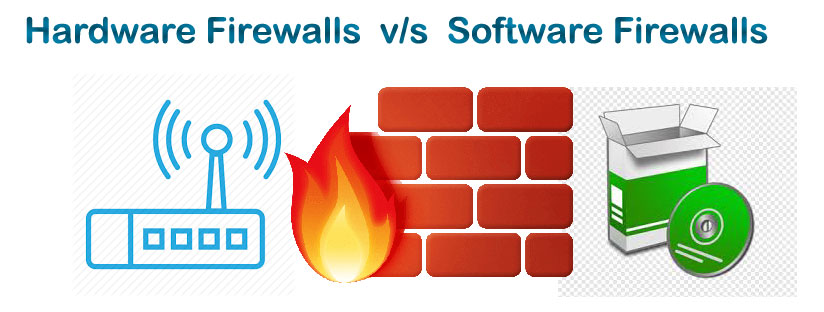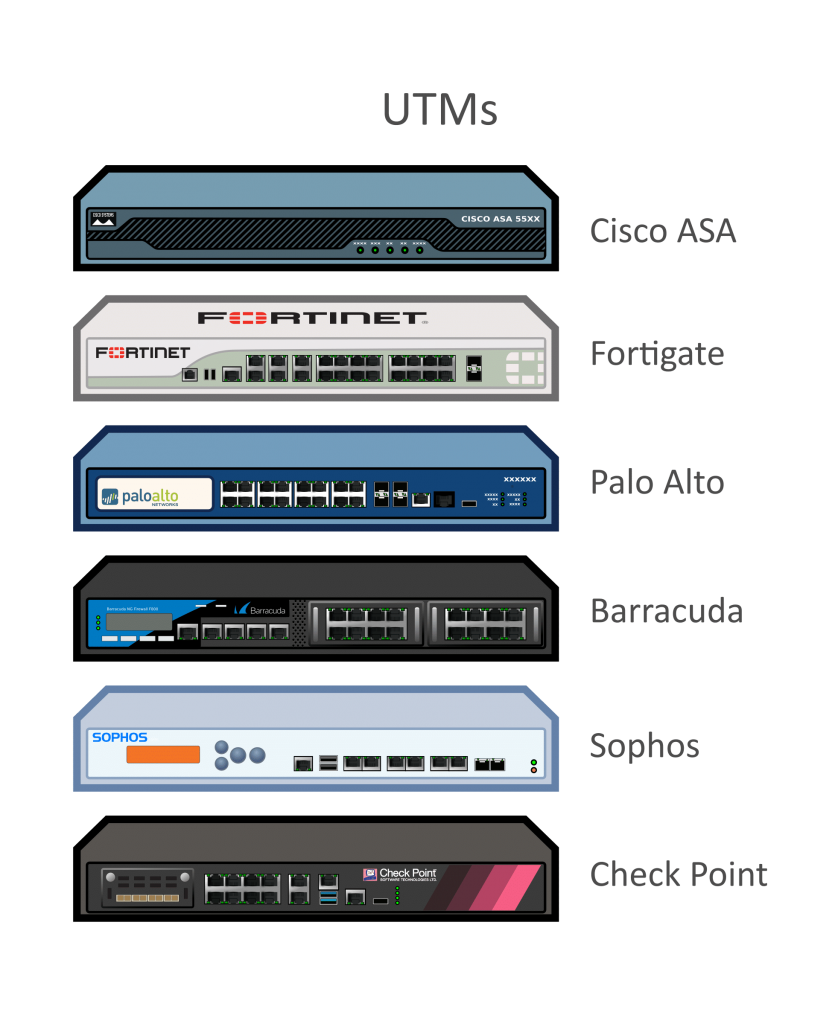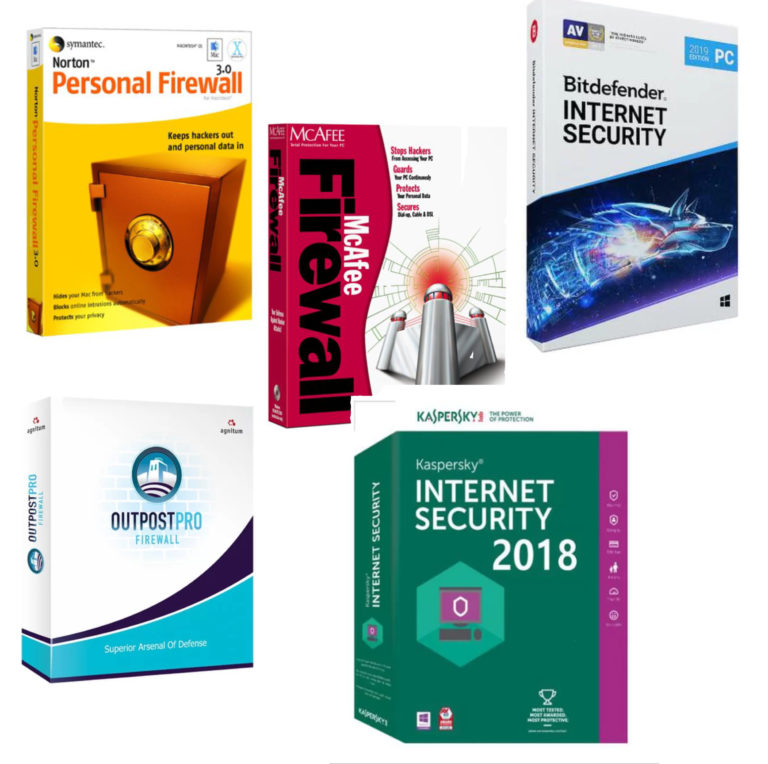Hardware Firewalls vs Software Firewalls

Hardware Firewalls vs Software Firewalls
The Difference Between Hardware and Software Firewalls
A firewall is a protective system that lies, in essence, between your computer network and the Internet. When used correctly, a firewall prevents unauthorized use and access to your network.
A firewall is a protective system that lies, in essence, between your computer network and the Internet. When used correctly, a firewall prevents unauthorized use and access to your network. The job of a firewall is to carefully analyze data entering and exiting the network based on your configuration. It ignores information that comes from an unsecured, unknown or suspicious locations. A firewall plays an important role on any network as it provides a protective barrier against most forms of attack coming from the outside world.
Firewalls can be either hardware or software.
The ideal firewall configuration will consist of both. In addition to limiting access to you computer and network, a firewall is also useful for allowing remote access to a private network through secure authentication certificates and logins.
While many people do not completely understand the importance and necessity of a firewall, or consider it to be a product for businesses only, if your network or computer has access to the outside world via the Internet then you need have a firewall to protect your network, individual computer and data therein.
Most people have a vague idea of what a network firewall does. But some business owners are easily fooled by promises of quick and easy solutions that can be installed and managed right from your desktop. In the software vs. hardware debate, there’s a clear winner when it comes to your security. Let’s take a look at what the differences are and why they matter.
Hardware Firewalls

Hardware Firewalls
Hardware firewalls can be purchased as a stand-alone product but more recently hardware firewalls are typically found in broadband routers, and should be considered an important part of your system and network set-up, especially for anyone on a broadband connection. Hardware firewalls can be effective with little or no configuration, and they can protect every machine on a local network. Most hardware firewalls will have a minimum of four network ports to connect other computers, but for larger networks, business networking firewall solutions are available.
A hardware firewall uses packet filtering to examine the header of a packet to determine its source and destination. This information is compared to a set of predefined or user-created rules that determine whether the packet is to be forwarded or dropped.
As with any electronic equipment, a computer user with general computer knowledge can plug in a firewall, adjust a few settings and have it work. To ensure that your firewall is configured for optimal security and protect however, consumers will no doubt need to learn the specific features of their hardware firewall, how to enable them, and how to test the firewall to ensure its doing a good job of protecting your network.
Not all firewalls are created equal, and to this end it is important to read the manual and documentation that comes with your product. Additionally the manufacturer’s Web site will usually provide a knowledgebase or FAQ to help you get started. If the terminology is a bit too tech-oriented, you can also use the Webopedia search to help you get a better understanding of some of the tech and computer terms you will encounter while setting up your hardware firewall.
To test your hardware firewall security, you can purchase third-party test software or search the Internet for a free online-based firewall testing service. Firewall testing is an important part of maintenance to ensure your system is always configured for optimal protection.
Because the drawbacks of a software-based firewall are centered around their inefficient network position, a hardware solution is the safer option. Hardware firewalls sit directly behind your router, so every single packet of data coming from the internet must pass through your gatekeeper before landing on any of your internal drives.
Most of these solutions include far more sophisticated controls than just web filtering and basic data scanning. Like most developments in the IT industry, newer hardware firewalls focus on “intelligent” functions that analyze huge datasets to recognize malware and cyberattacks based on irregular activities instead of relying solely on cataloged viruses and attack vectors.
Another benefit of hardware firewalls is that they’re always on. There’s no need to worry about whether the workstation hosting your solution will crash because these devices are built for 24/7 protection. The only downside to this type of solution is the level of monitoring and maintenance it requires. Hardware firewalls are extremely complex and managing them is no easy task.
Software Firewalls

Software Firewalls
For individual home users, the most popular firewall choice is a software firewall. Software firewalls are installed on your computer (like any software) and you can customize it; allowing you some control over its function and protection features. A software firewall will protect your computer from outside attempts to control or gain access your computer, and, depending on your choice of software firewall, it could also provide protection against the most common Trojan programs or e-mail worms. Many software firewalls have user defined controls for setting up safe file and printer sharing and to block unsafe applications from running on your system. Additionally, software firewalls may also incorporate privacy controls, web filtering and more. The downside to software firewalls is that they will only protect the computer they are installed on, not a network, so each computer will need to have a software firewall installed on it.
Like hardware firewalls there is a vast number of software firewalls to choose from. To get started you may wish to read reviews of software firewalls and search out the product Web site to glean some information first. Because your software firewall will always be running on your computer, you should make note of the system resources it will require to run and any incompatibilities with your operating system. A good software firewall will run in the background on your system and use only a small amount of system resources. It is important to monitor a software firewall once installed and to download any updates available from the developer.
The differences between a software and hardware firewall are vast, and the best protection for your computer and network is to use both, as each offers different but much-needed security features and benefits. Updating your firewall and your operating system is essential to maintaining optimal protection, as is testing your firewall to ensure it is connected and working correctly.
Calling a piece of software a “firewall” is a bit of an exaggeration. Installing it on a local hard drive is more like locks on a door than impenetrable walls. When data is scanned for threats by a software firewall, the information it contains has already been passed through your router, network switch, and finally your local hard drive.
Once the whole cycle has finished, software firewalls can prohibit risky activities based on blacklisted IP addresses, known malware definitions, and suspicious application requests.
Although these solutions do have value, they can’t guarantee that malware won’t spread to other systems before each packet of data can be scanned, unless they’re standing guard at your business’s gateway to the internet. And whenever the computer with the firewall is powered off, everything it protects is left unguarded.
Cloud Firewalls
The most recent, and undoubtedly best, solution to network perimeter security are “cloud” firewalls. These are on-site pieces of hardware with software interfaces that can be managed remotely by certified security professionals.
This service model means that experts will monitor your network performance and security for anomalies while your team goes about its business as usual. No need for onsite tweaks and updates — all of it can be done remotely.
You may hear a lot of experts telling you that the age of on-site hardware has passed and everything can be done in the cloud. Remote administration may be the next wave in network services, but the need for hardware will never go away. If you need someone to manage your physical devices, contact us today.
 Firewall Security Company India Complete Firewall Security Solutions Provider Company in India
Firewall Security Company India Complete Firewall Security Solutions Provider Company in India











